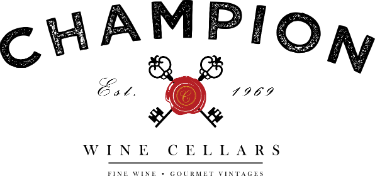The Drouhin family has had a long history in Burgundy, but aside from the normal information about the estate, we’ve included an article from the Orlando Sentinel titled “How France won the war to keep wine from Germans.” It’s a pretty old one in today’s standards (from 2001), but it holds relevant and interesting revelations about how that family, (the same family referenced in today's offer) was a part of the effort to hide wine from, and subvert, the Nazis.
"Recently the French commissioned a study, as only the French would, of what makes them French. Just after such obvious characteristics as being French-born, speaking French and defending liberty, came the most telling: an appreciation of wine -- good wine -- which, in their case, meant French wine.
It's the only way to explain why the French in World War II risked so much -- and compromised so much -- to protect their finest bottles from German troops. The story is told in the book, Wine and War: The French, the Nazis and the Battle for France's Greatest Treasure by Don and Petie Kladstrup (Broadway Books, $24).
When the German blitzkrieg took over France in 1940, Adolf Hitler had no taste for wine, scorning it as 'vulgar vinegar,' preferring beer. But he was candid in his lust for booty: 'The real profiteers of this war are ourselves. We will give back nothing and will take everything we can make use of.'
In the early days of occupation, German soldiers routinely strode into chateau cellars and confiscated fine wines by the truckload, the authors say. But that offended the German sense of order. Quickly the process became more settled.
The Germans appointed some of their top wine experts to organize the effort, each taking over a given wine area -- from Champagne to Bordeaux to Burgundy -- and setting up a trade in wine, buying from the French at rock-bottom prices, selling at top prices on the international market, with the profits going to the Third Reich.
The French adopted a name for the overseers: weinfuhrers.
But there was a chink in the Nazi armor: Many of their weinfuhrers knew their subject because they had been in the wine trade before the war -- sometimes as import agents dealing with the French chateaux of which they were now in charge. They were generations-long friends with the French winemakers, even godparents to their children.
It created an awkward coziness. Heinz Bomers, for example, the weinfuhrer for Bordeaux, had been importing French wine for years. His family had owned Chateau Smith-Haut-Lafitte before the French confiscated it in World War I.
So Bomers often went out of his way to see that the French growers were fairly treated. And the French often cooperated with the weinfuhrers. There was no thought of the kind of scorched earth policy the Russians adopted on the Eastern front, destroying their own villages to keep everything of value from the Germans.
At the same time the French used every trick they could think of to keep their finest wines from the Germans. In Burgundy, the family of winemaker Maurice Drouhin built a false wall in their cellars to hide as many bottles as they could.
In Paris, carpet-cleaning establishments saved dust from old rugs to give to restaurants, so they could put it on bottles to convince German soldiers that the cheap, young plonk they were being overcharged for was from old vintages.
As the war wore on, Nazi brutality prompted winemakers to take more drastic forms of resistance. Modern-day wine aficionados will be fascinated to read how now-world-famous winemakers fought the enemy. At age 8, Robert Drouhin, today the owner of Maison Joseph Drouhin, was awakened by Nazis seeking his father because of his work in the Resistance. The Countess Philippine de Rothschild, owner of Chateau Mouton-Rothschild, watched in terror as her mother was dragged out of their home and put on a train bound for a German death camp. Dietrich von Choltitz, the German Paris commander who disobeyed Hitler's order to destroy the city, later said he was persuaded to save it by Champagne maker Pierre Taittinger, the city's Vichy-appointed mayor.
After the war came the task of deciding which French chateau owners had cooperated too much, as France put 160,000 citizens from all walks of life on trial as collaborators. One who lost was Louis Eschenauer, a French broker who became 'King of Bordeaux' during the war by organizing much of the German trade from his region.
He had used his influence to persuade the Germans not to blow up the city of Bordeaux as they retreated. But he also had profited from the war, paying low prices for chateaux confiscated from Jewish owners.
As the war ended, French troops raced ahead of American units to secure the honor of rescuing the incredible stash of looted wine, paintings and other booty that Hitler had hidden.
It was a matter of personal pride as well as patriotism. A French army sergeant who was first to enter a locked cave was in civilian life a winemaker. One of his first discoveries was cases of the fabled 1928 Salon champagne. He had helped his uncle make that vintage."
